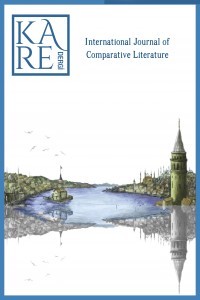Memory as a Site of Resistance in Ursula Le Guin’s City of Illusions
Memory as a Site of Resistance in Ursula Le Guin’s City of Illusions
Concepts of collective memory and counter-memory are two significant terms to establish a person’s bond with his/her past and to build his/her identity. This study examines the forces shaping collective memory through a Foucauldian lens and looks into the function of counter-memory as a resistance mechanism against these forces. In doing so, Ursula Le Guin’s dystopian novel City of Illusions is analyzed as an example in terms of the workings of the memory. The novel, whose protagonist is depicted as an alien without memory, displays that the only way to resist against the collective memory which is presented as the absolute truth is possible by maintaining the bond with one’s historical and cultural facts. The counter-memory comes into picture when an individual’s own memory or knowledge contradicts with the indoctrinated knowledge given to him/her by the collective memory. The protagonist of the novel can only resist against the Shing, the dominant group in power, by using his counter-memory when the Shing attempts to destroy any trace of undesired knowledge and thus re-shape collective memory. In this regard, this paper aims to apply Foucault’s counter-memory into this novel and investigate how the memory can be employed as a form of resistance.
___
- Foucault, Michel. The History of Sexuality. Vol. 1, Pantheon Books, 1978.
- Kelly, Michael, ed. Critique and Power-Recasting the Foucault/Habernas Debate. The MIT Press, 1994.
- Le Guin, Ursula K. City of Illusions, 1967
- Medina, Jose. “Toward a Foucauldian Epistemology of Resistance: Counter Memory, Epistemic Friction”. Foucault Studies, vol. 12, 2011.
- Mistral, Barbara, Theories of Social Remembering. England: Open U Press, 2003
- Vinthagen, Stellan, and Anna Johansson. “‘Everyday Resistance’: Exploration of a Concept and Its Theories.” Resistance Studies Magazine, vol. 1, 2013.
- ISSN: 2536-4596
- Yayın Aralığı: Yılda 2 Sayı
- Başlangıç: 2016
- Yayıncı: Hasan BAKTIR
